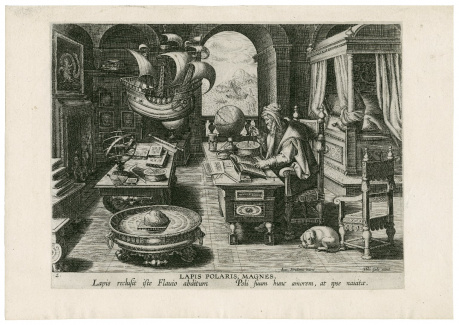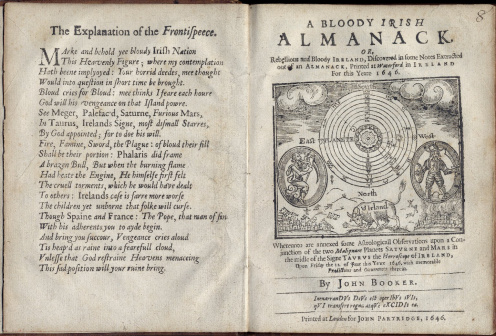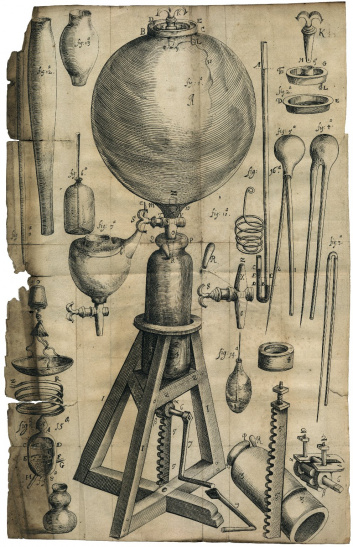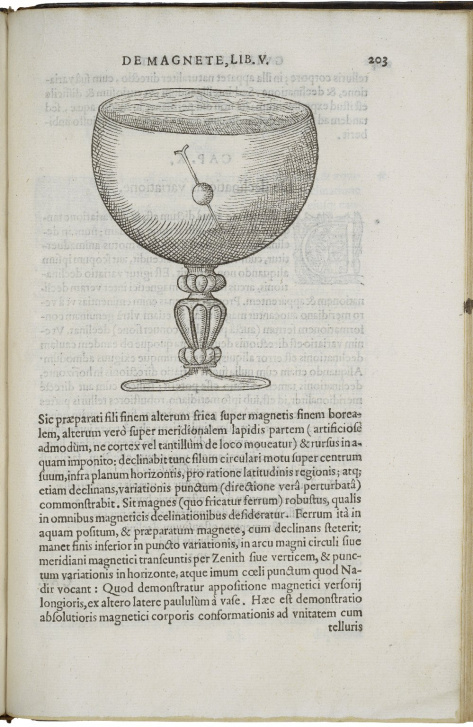NEH Summer Institute: Experience and Experiment in Early Modern Europe (seminar)
Directed by Pamela O. Long, senior research fellow at the Dibner institute at the Massachusetts Institute of Technology, and Pamela H. Smith, Associate Professor in the Department of History at Pomona College, Claremont and Director of European Studies at Claremont Graduate University
June 25 through August 3, 2001

This NEH Summer Institute for College and University Faculty opened up a wide-ranging investigation of the different understandings and contexts of experience in the early modern period. Changing views of experience affected many areas, including the conceptualization of human psychology and the human soul; artisanal knowledge; alchemical and neo-Platonic approaches to the material world; views of the body both as a subject of anatomy and as a source of agency; the nature and role of the five senses; techniques of visual representation; and new experimental methodologies. The institute gathered a distinguished visiting faculty and sixteen college teachers from across the country-each with their own expertises and perspectives-to examine a number of practices in these areas, including painting, architecture, cartography, alchemy, medicine, mechanics, and literature. It investigated the increasing significance that technical knowledge came to have in social and economic configurations such as court culture, urban culture, and the marketplace. It paid particular attention to the habits of mind-the "material understanding"-of the craftsperson out of which was shaped a new empirical "method of philosophizing" and a new way of viewing nature.
Some of the most basic assumptions about the nature of the world and our means of experiencing it changed fundamentally in the early modem period. This institute's study is shaped by the most crucial result: a transformation of natural philosophy grounded in Aristotelian common experience--or experience everyone would agree upon without need for investigation into an experimental philosophy based on a central role for instrumentation and specialized material techniques used in the validation of knowledge claims.

But because experience remains such a touchstone of knowledge in our modem world, we readily believe that it is a stable and transhistorical-indeed a universal-phenomena: an empathetic way back into the mindsets of the past. This institute seeks first to trouble those easy assumptions about the nature of experience and then to open up a wide ranging and carefully nuanced investigation of different strands and shifting understandings of experience in the early modem period. These understandings include a new orientation towards experimentalism in the seventeenth century. The institute will gather historians of science, cultural historians, art historians, philosophers, anthropologists, sociologists, literary critics, and historians of technology for this work. It will draw upon and consolidate some of the exciting research that is currently being done in each of these disciplines (by our contributors among others). With cross-, inter-, and counter-disciplinary conversations, it will undertake a comparative investigation of key issues and texts that inform our understandings of the transformations of experience and the uses of experimentation in diverse fields. It will analyze at what points and in what ways experiment comes to function as proof in a wide variety of local circumstances. As a result, it will help reshape a common body of knowledge about the radical change in the nature of experience in the early modern period, a change that traditionally has been signaled by the term"scientific revolution."
Materials and Products
The syllabus is available here.
While the website is no longer supported, it has been archived: Institute Website: Experience and Experiment in Early Modern Europe
A PDF of the website's pages with the participants' interpretive essays.
A PDF of the original promotional flyer.

Participants
(All affiliations are as of the program's date)
Antonio Barrera, Assistant Professor of History at Colgate University
Eric A. G. Binnie, Associate Professor of Theatre Arts at Hendrix College
Galen Brokaw, Assistant Professor of Modern Languages and Literatures at the University at Buffalo, State University of New York
Regina Buccola, Assistant Professor of English Literature at Roosevelt University
Colin Dickson, Professor of French at Washington College
Donald Grabner, OSB, Teacher of Theology at Conception Seminary College
Jeremiah Hackett, Professor of Philosophy at the University of South Carolina
Michael Harrawood, Assistant Professor of English at Florida Atlantic College
Helen Hattab, Assistant Professor of Philosophy at Southern Illinois University
Martha Hoffman-Strock, Assistant Professor of History at Texas Christian University
Bruce Janecek, Assistant Professor of History at North Central College
Harry Kitsikopoulos, Assistant Professor of Economics at New York University
Eric Leonidas, Assistant Professor of English at Central Connecticut State University
Pamela Lieske, Assistant Professor of English at Kent State University, Trumbull
James W. McManus, Professor of Art History at California State University, Chico
Steven A. Walton, Assistant Professor of the History of Science at Michigan Technological University
Faculty
(All affiliations are as of the program's date)
J.A. Bennett, Director of the Museum of the History of Science, Oxford University
Peter Dear, Professor of History, Cornell University

Paula Findlen, Professor of History, Stanford University
Mary Fissell, Professor of the History of Science, Medicine, and Technology, Johns Hopkins University
Beth Holman, Associate Professor at the Bard Graduate Center for Studies in the Decorative Arts, Design, and Culture
Adrian Johns, Associate Professor of the History of Science, University of Chicago
Chandra Mukerji, Professor of Communications, University of California, San Diego
Gail Kern Paster, Professor of English, George Washington University
David Summers, Professor of Art, University of Virginia
John Sutton, Professor of Philosophy, Macquarie University
Website Production
Martha Fay, Designer
Julie Ainsworth, Folger Shakespeare Library photographer
Pamela O. Long and Pamela H. Smith, Advisory Editors
Kathleen Lynch, Editor
Owen Williams, Managing Editor
Lisa Meyers, Research Assistant
Brian Shetler, Editorial Assistant
Andrew Baird, Editorial Assistant
Folger Institute Staff
Barbara Mowat, Chair
Kathleen Lynch, Executive Director
Owen Williams, Program Administrator
Carol Brobeck, Program Coordinator
Lisa Meyers, Program Assistant
Brian Shetler, Intern